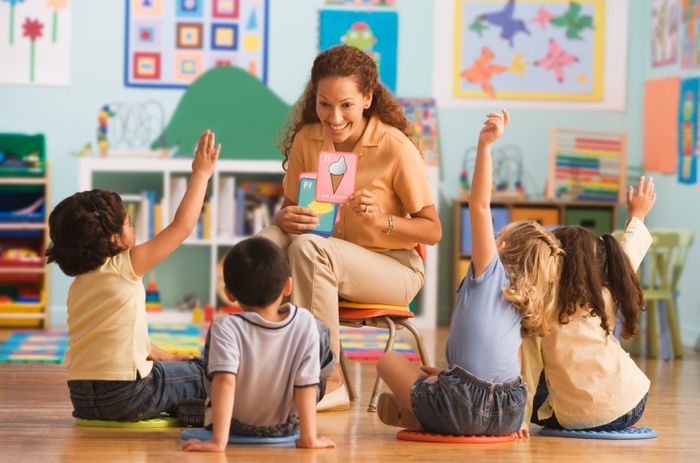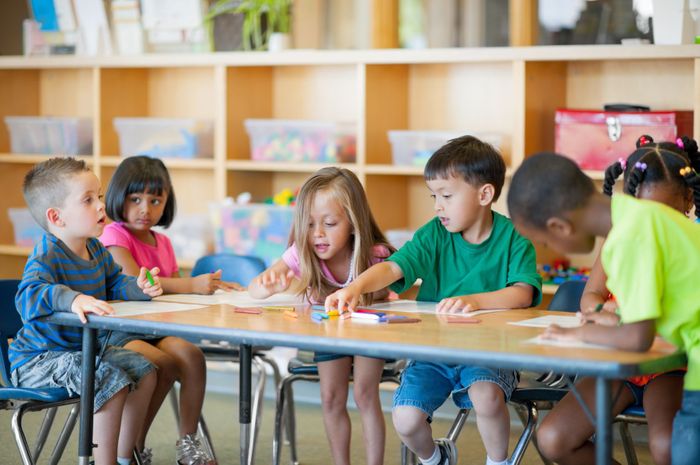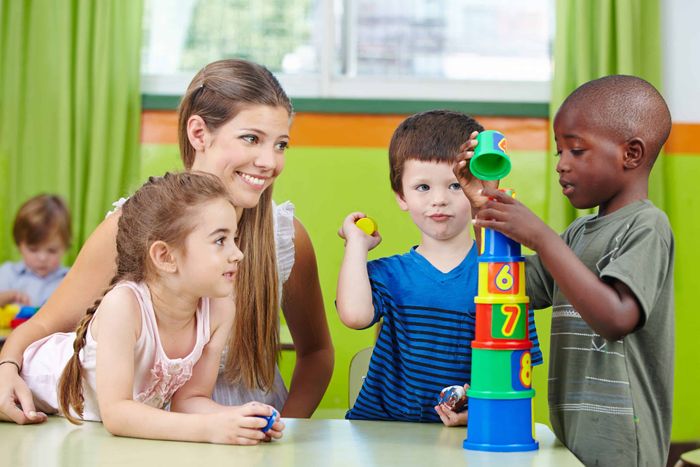Early childhood development lays the foundation for future academic success in a child's growth. As parents, caregivers, and educators, understanding the key factors that contribute to school readiness is important. In this blog, we look into the multifaceted world of early childhood education, unraveling the key elements that lay the groundwork for a child's readiness to step confidently into formal education.

What Factors in Early Childhood Education Contribute to School Readiness

Understanding School Readiness
Before we go on the exploration of factors contributing to school readiness, let's look into the concept itself. School readiness goes beyond the surface of basic knowledge; it entails a complete understanding of a child's cognitive, social, emotional, and physical preparedness to actively engage in the formal education setting. It is not only the accumulation of facts but a dynamic interplay of various developmental factors that collectively create a solid foundation for a child's lifelong learning journey.

The Role of Early Childhood Education Programs
- High-Quality Learning Environments
The environment in which a child learns plays a crucial role in their readiness for school. High-quality early childhood education programs provide stimulating and improving surroundings that support optimal development. These environments are designed to respond to the diverse needs of young learners. A well-designed learning environment includes age-appropriate materials, engaging educational displays, and designated areas for different types of activities. This creates a space that fosters curiosity and exploration, promoting a love for learning.
- Responsive Teaching Practices
Educators with knowledge of child development employ responsive teaching practices. This involves adapting teaching methods to suit the individual needs of each child, promoting an inclusive and supportive learning environment. Differentiated instruction, where educators customize their approach to accommodate various learning styles, ensures that every child receives the necessary support. This approach recognizes and celebrates the unique strengths and abilities of each learner.
Parental Involvement
- Collaborative Support
The journey to school readiness is a collaborative effort between parents and educators. Establishing strong partnerships ensures that the child receives consistent support and reinforcement of learning both at home and in the early childhood education setting. Parents can actively participate in their child's education by attending parent-teacher conferences, engaging in home-based learning activities, and staying informed about their child's progress. This collaboration strengthens the continuity of learning between home and school.
- Continuous Communication
Open lines of communication between parents and educators create a cohesive approach to a child's development. Regular updates on a child's progress, challenges, and achievements enable parents to actively participate in their child's educational journey. Communication can take various forms, including newsletters, emails, or virtual platforms. Ensuring transparent and consistent communication fosters a supportive relationship between parents and educators, reinforcing the importance of a unified approach to a child's education.
Conclusion
Early childhood education plays a crucial role in shaping a child's foundation, encompassing cognitive development and fostering positive relationships. To ensure your child receives the best start, consider exploring reputable early childhood education schools near you, such as Benjamin Preparatory School serving Atlanta, Kennesaw, and Vinings, GA. Investing in quality education during these formative years is an investment in their future success.
Let's empower our children with the tools they need to grow academically and beyond.
FAQs
What is School Readiness, and Why is it Important for my Child?
School readiness is a holistic approach to preparing a child for formal education. It involves developing cognitive, social, emotional, and physical skills essential for a successful start in school. A readiness-ready child is better equipped to engage in learning, build positive relationships, and navigate the challenges of the academic environment.
How can Play-Based Learning Contribute to my Child's Cognitive Development?
Play-based learning is a dynamic method that promotes cognitive development in children. Through play, children enhance problem-solving skills, creativity, and critical thinking. It provides an enjoyable platform for learning, promoting a positive attitude toward education and laying a strong foundation for future academic success.
What Role Do Parents Play in Supporting Early Childhood Education and School Readiness?
Parents are crucial partners in facilitating a child's school readiness. By establishing positive relationships, engaging in literacy activities, and supporting emotional development, parents create a conducive home environment. Open communication with educators ensures a collaborative approach, allowing children to receive consistent support both at home and in their early education.
How Does a High-Quality Learning Environment Contribute to School Readiness?
A high-quality learning environment provides a stimulating and enriching space for children's optimal development. It includes well-designed classrooms, age-appropriate materials, and responsive teaching practices. Such an environment supports children in building foundational skills, fostering a positive attitude toward learning, and preparing them for the challenges of formal education.
What are Gross Motor Skills, and Why are They Important for School readiness?
Gross motor skills involve the coordination of large muscle groups and are crucial for physical development. Activities that promote these skills, such as running, jumping, and climbing, contribute to a child's overall physical readiness for school. Well-developed gross motor skills enhance a child's ability to engage in physical activities at school, promoting a healthy and active lifestyle.
